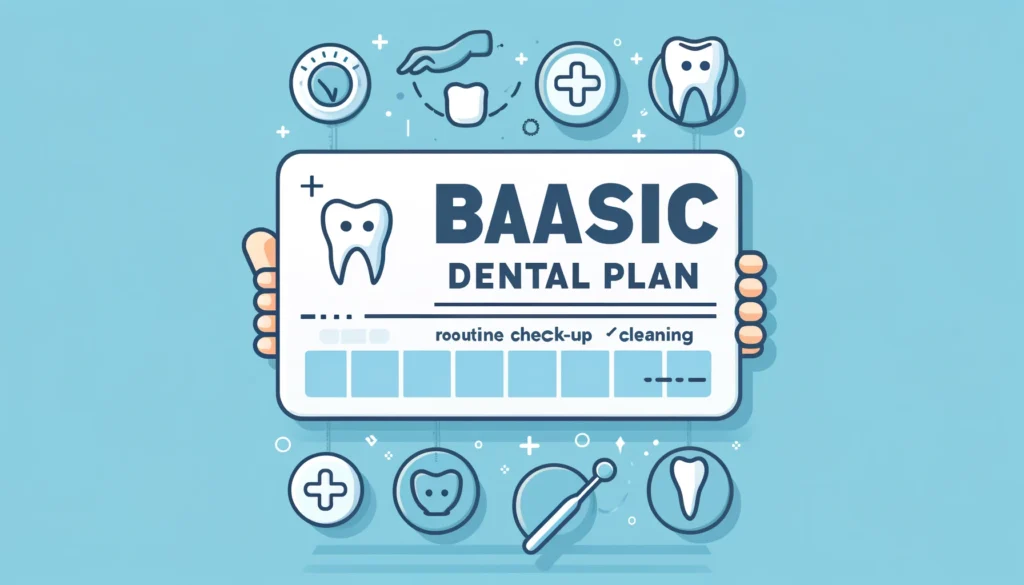I know figuring out Florida Medicaid dental plans can be super confusing, so I’m here to help break it down for you. There are several options available like DentaQuest, MCNA Dental, and Liberty Dental Plan, and they all cover a range of services from regular check-ups to emergency treatments.
For kids, the coverage is pretty extensive, which is great. For adults, it’s mainly emergency services, but some plans offer extra benefits for specific groups. When you’re choosing a plan, it’s important to look at things like which dentists are in the network, what services you might need, and any additional perks.
Some of the top-rated plans include Delta Dental, Liberty Dental Plan, and DentaQuest. Each has its strengths and weaknesses, so it’s really important to compare the costs, benefits, and common issues. Understanding plan limitations, pre-authorization requirements, and cost comparisons can really help you make the best decision for your dental care. So, let’s dive into the details and make this a bit easier to understand.
What Dental Services are Covered?

Let’s dive into the details of Florida Medicaid dental plans.
For Kids (Ages 0-20)
Coverage for kids under 21 is pretty comprehensive. Here’s what’s typically covered:
- Dental exams and cleanings
- X-rays
- Fluoride treatments and sealants
- Fillings and crowns
- Root canals
- Periodontal treatment
- Orthodontics
- Dentures
- Oral surgery and extractions
- IV sedation and hospital dental services

For Adults (21 and Over)
For adults, the focus is more on emergency care. Here’s what’s usually covered:
- Limited dental exams and X-rays
- Dentures
- Tooth extractions
- Problem-focused exams
- Pain management
- Sedation for dental services
Expanded Benefits for Adults

Some plans offer extra benefits for adults, which can include:
- Additional cleanings and X-rays
- Fillings
- Deep cleanings (scaling and root planing)
- Fluoride and sealants
- Oral health education
Extra Services for Pregnant Women
If you’re pregnant and over 21, you might get additional services to support a healthy pregnancy, like extra cleanings and exams.
Important Notes
Remember, all dental services must be deemed medically necessary to be covered by Medicaid. Some services, like crowns, root canals, dentures, and surgical procedures, usually require pre-authorization. This means your dentist needs to get approval from the plan before they can provide the treatment.
Plan Differences
The specific services, frequency limitations, and authorization requirements can vary between plans. It’s a good idea to review your plan benefits and work closely with your dental provider to make sure you’re getting the covered services you need to keep your teeth in great shape.
What Are the Available Dental Plans?

Florida Medicaid recipients have three statewide dental plans to choose from, each offering different benefits and coverage options:
DentaQuest
DentaQuest is one of the largest Medicaid dental benefit managers in the country, serving over 80 million members nationwide. They focus on preventive care and provide comprehensive coverage for both children and adults. With DentaQuest, you will get:
- Exams and cleanings
- X-rays
- Fillings and crowns
- Root canals
- Dentures
- And more
MCNA Dental
MCNA administers dental benefits for Medicaid enrollees across the entire state of Florida. They emphasize preventive care and offer a wide range of covered services for children and adults. Plus, you will get some neat incentives, like:
- Free electric toothbrushes for completing dental visits within 90 days of enrollment
Liberty Dental Plan
Florida Medicaid recipients have three statewide dental plans to choose from, each offering different benefits and coverage options:
- Preventive services
- Fillings
- Crowns
- Root canals
- Dentures
Liberty is also known for providing language assistance services to support enrollees.
Choosing the Right Plan
When selecting a dental plan, consider these factors:
- Accepted Providers: Check which plans your current dental providers accept.
- Type of Providers Needed: Determine if you need general dentists, pediatric dentists, or specialists.
- Covered Services and Benefits: Look at the specific services and benefits each plan covers.
- Additional Perks: Consider any extra perks or incentives offered by the plans.
How to Compare Plans
You can compare plan options and benefits through the Florida Medicaid Member Portal or by contacting a Choice Counselor for assistance. While core benefits are similar across plans, differences in provider networks, authorization requirements, and extra benefits can impact your access to care and out-of-pocket costs.
By carefully reviewing plan details, you can select the best option for your individual needs.
What are The Top-Rated Dental Plans?
| Plan | Strengths | Limitations |
| Delta Dental | – Extensive network of over 150,000 providers nationwide – Offers HMO, PPO, and discount plan options – Strong financial ratings | – Low annual maximum benefits, often capped at $1,000 – Limited coverage for orthodontics |
| Liberty Dental Plan | – Offers Medicaid plans in Florida – Covers preventive care, fillings, crowns, root canals, dentures – Provides language assistance services | – Only available in certain states – Has a 6-month waiting period for major services like crowns and dentures |
| DentaQuest | – Large Medicaid dental benefits manager – Comprehensive coverage for children and adults – Focuses on preventive care | – Has faced criticism for restrictive audit practices – Some providers report frequent denials of coverage |
Cost Comparison of Top Plans
Here is a cost comparison of the top Florida Medicaid dental plans:
- DentaQuest:
- No premiums or deductibles
- $3 copay for dental visits for adults over 21
- $1,000 annual maximum benefit per adult enrollee
- Covers preventive services like exams, cleanings, and X-rays every 6 months for both children and adults
- Limited coverage for major restorative services like crowns and dentures for adults
- MCNA Dental:
- No premiums or deductibles
- $3 copay for adult dental visits
- No annual maximum benefit listed
- Covers preventive services every 6 months for children and adults
- Provides a free electric toothbrush for enrollees who complete a dental visit within 90 days of enrollment
- More comprehensive coverage for children, including crowns, root canals, and orthodontics
- Liberty Dental Plan:
- No premiums or deductibles
- $3 copay for adult dental visits
- No annual maximum benefit listed
- Covers preventive services every 6 months for children and adults
- Includes coverage for crowns and root canals for adults
- 6-month waiting period before coverage begins for major restorative services like crowns and dentures for adults
- Delta Dental:
- Premiums, deductibles, copays, and annual maximums not specified
- Known for a large network of participating providers
- Focuses on preventive care and regular checkups to maintain oral health
- Specific benefit details and limitations not readily available.
In summary, all top plans have no premiums or deductibles, with most charging a small $3 copay for adult dental visits. DentaQuest lists a $1,000 annual maximum for adults, while the others don’t specify maximums.
Liberty stands out for covering crowns and root canals for adults, and MCNA offers a free electric toothbrush incentive. Benefit specifics are limited for Delta Dental, so comparing covered services, networks, and limitations is crucial when selecting the best plan for your needs and budget.
Factors to Consider When Evaluating Dental Plans
- Network Size and Accessibility: Ensure the plan has a wide network of providers that are easily accessible.
- Breadth of Covered Services: Look for plans that offer a wide range of services, including any extra benefits.
- Annual Maximums and Coverage Limits: Check the annual maximum benefits and any other coverage limits.
- Premiums, Deductibles, and Copayments: Consider the cost of premiums, deductibles, and copayment amounts.
- Plan Type: Decide whether an HMO, PPO, or discount plan best suits your needs.
- Ratings and Reviews: Look at ratings and reviews from current enrollees to gauge satisfaction.
Summary
- Delta Dental: Stands out for its extensive network and variety of plan options but has low annual maximums.
- Liberty Dental Plan: A good choice for Florida Medicaid enrollees with broad coverage and language assistance but has waiting periods for major services.
- DentaQuest: Known for comprehensive coverage and preventive care focus but has some criticism for audit practices and denials.
Ultimately, the best dental plan depends on your specific needs, preferences, and budget. By carefully comparing network providers, covered services, costs, and limitations, you can select a plan that offers the optimal mix of access, affordability, and value.
Comparing Dental Plan Costs and Benefits
Here is a comparison of the costs and benefits of some common dental insurance plans:
Dental Plans Comparison
| Plan Type | Premiums | Deductibles | Annual Maximum | Covered Services |
| DPPO | $20-60 per month | $25-150 per person | $1,000-2,000 per person | Preventive care at 100%, basic procedures at 80%, major procedures at 50% |
| DHMO | $10-30 per month | None | No annual maximum | Predetermined copays for each type of service, covers preventive care and some basic and major services |
| Dental Indemnity | $30-50 per month | $50-100 per person | $1,000-1,500 per person | Pays a fixed amount for each procedure according to a fee schedule, allows any dentist |
| Discount Plans | $10-20 per month | None | No annual maximum | Discounted fees for services from participating providers, covers preventive care and some restorative services |
Detailed Breakdown
DPPO (Dental Preferred Provider Organizations)
- Premiums and Deductibles: Higher premiums and deductibles, with monthly premiums ranging from $20-60 and deductibles from $25-150 per person.
- Annual Maximum: $1,000-2,000 per person.
- Coverage: Preventive care is covered at 100%, basic procedures at 80%, and major procedures at 50%. Out-of-network care is also covered but at lower percentages.
DHMO (Dental Health Maintenance Organizations)
- Premiums and Deductibles: Lower premiums and no deductibles, with monthly premiums ranging from $10-30.
- Annual Maximum: No annual maximum.
- Coverage: Predetermined copays for each type of covered service. Preventive care usually has low or no copays. Requires using an in-network dentist.
Dental Indemnity
- Premiums and Deductibles: Monthly premiums range from $30-50, with deductibles from $50-100 per person.
- Annual Maximum: $1,000-1,500 per person.
- Coverage: Pays a fixed amount for each dental procedure according to a fee schedule and allows you to use any dentist. However, you may be balance billed if your dentist charges more than the plan allows.
Discount Plans
- Premiums and Deductibles: Lower cost option with monthly premiums ranging from $10-20 and no deductibles.
- Annual Maximum: No annual maximum.
- Coverage: Provides access to discounted rates from participating dentists. Members pay a reduced fee directly to the dentist at the time of service. Covers preventive care and some restorative services.
Considerations When Comparing Plans
- Total Annual Costs: Look at premiums, deductibles, copays, and coinsurance.
- Network of Participating Dentists: Ensure the plan has dentists you prefer or are conveniently located.
- Annual Maximum Benefit: Higher maximums can be beneficial if you need significant dental work.
- Waiting Periods and Exclusions: Be aware of any waiting periods for certain services and exclusions.
The best plan depends on your specific needs and budget. Plans with higher monthly premiums but more comprehensive coverage may be worth it if you anticipate needing major dental work. Preventive-focused plans with lower premiums can be a good fit if you only need basic care.
What are the Common Issues with Plans You Might Face?
Here are some common issues that enrollees may encounter with Florida Medicaid dental plans:
Common Issues with Florida Medicaid Dental Plans
- Limited Provider Networks
- Some plans have a small number of participating dentists. This can make it hard to find a conveniently located provider who is accepting new patients. You might need to travel farther or wait longer for appointments with in-network providers.
- Frequent Denials of Coverage
- Enrollees and providers sometimes report that certain plans, like DentaQuest, have overly restrictive approval processes and tend to deny coverage for needed services. This can lead to delays in care and unexpected out-of-pocket costs.
- Lack of Coverage for Certain Services
- While Medicaid dental plans cover many basic services, some common procedures like wisdom tooth extractions, implants, or cosmetic treatments may not be covered or may only be approved in limited circumstances. This can result in high costs for these services.
- Difficulty Obtaining Pre-Authorization
- The pre-authorization process for services like crowns, root canals, and oral surgery can be time-consuming and burdensome for providers. Delays in approval can postpone needed treatment and negatively impact patient care.
- Inconsistent Customer Service
- Some enrollees report challenges in getting clear, accurate information from plan representatives about coverage, participating providers, and authorization requirements. Poor communication can make it harder to navigate your benefits and access care.
- Billing and Reimbursement Issues
- Dentists may encounter problems with delayed payments, denied claims, or low reimbursement rates from certain plans. These issues can discourage provider participation and limit your access to care.
Tips for Managing Common Issues
- Research Network Size: Check the number of participating providers in your area to ensure you can find a conveniently located dentist accepting new patients.
- Understand Approval Processes: Familiarize yourself with the plan’s approval processes and be prepared for potential delays. Advocate for needed services and consider appealing denials when appropriate.
- Review Covered Benefits: Make sure you understand what services are covered and be aware of any limitations on common procedures.
- Seek Clear Information: Contact plan representatives to get accurate information about your coverage, participating providers, and authorization requirements.
- Address Billing Issues: Work with your dental provider to address any billing or reimbursement issues and seek support from plan representatives and Medicaid customer service if necessary.
By being aware of these potential challenges and taking proactive steps, you can better manage your dental care under Florida Medicaid.
Understanding Dental Plan Limitations and Restrictions
Florida Medicaid dental plans come with certain limitations and restrictions on the services they cover, and it’s crucial for you to understand these to avoid unexpected out-of-pocket costs and ensure you get the care you need. So, let’s break it down in more detail:
- Your plan might restrict how often you can get services like exams, cleanings, and X-rays. For instance, DentaQuest covers one comprehensive oral evaluation every three years and one cleaning every six months for adults. This means if you need more frequent cleanings or evaluations, you might have to pay out-of-pocket.
- Age restrictions are another thing to watch out for. Some services are only covered for specific age groups. For example, orthodontic treatment is usually covered for children under 21, while dentures are typically covered for adults. This means if you are an adult needing orthodontic treatment, you might not be covered under your plan.
- Procedures like crowns, root canals, and periodontal services might need prior approval from your dental plan. This means you or your dentist must get authorization from the plan before the procedure is done. Skipping this step could mean denied coverage, leaving you responsible for the full cost of the procedure.
- Some services might not be covered at all, such as cosmetic procedures, implants, or teeth whitening. These are often considered elective or non-essential by insurance providers, so if you want these services, you will likely have to pay for them yourself.
- Wisdom tooth extractions are often excluded or only covered in limited situations. For example, they might only be covered if they are impacted or causing other dental issues. Routine extractions might not be covered, so it’s important to check with your plan.
- Waiting periods can also be a factor. For example, Liberty Dental Plan has a 6-month waiting period for major restorative services like crowns and dentures. This means you must be enrolled in the plan for at least six months before these services are covered.
- Provider network limitations mean you might only get coverage for services performed by dentists within your plan’s network. Going out-of-network could lead to higher costs or no coverage at all. It’s important to check if your preferred dentist is in-network to avoid unexpected expenses.
- To avoid any surprises and make sure you get the care you need, review your plan’s summary of benefits thoroughly. Ask your dentist about coverage before agreeing to treatment, and don’t hesitate to contact your plan’s customer service with any questions about these limitations and restrictions. This proactive approach can help you navigate your dental plan more effectively and ensure you receive the necessary care without unexpected costs.
To avoid any surprises and make sure you get the care you need, review your plan’s summary of benefits thoroughly. Ask your dentist about coverage before agreeing to treatment, and don’t hesitate to contact your plan’s customer service with any questions about these limitations and restrictions. This proactive approach can help you navigate your dental plan more effectively and ensure you receive the necessary care without unexpected costs.
Are There Any Pre-Authorization Requirements?
Many dental services covered by Florida Medicaid dental plans require pre-authorization before your dentist can perform the procedure. Pre-authorization, also known as prior approval or pre-certification, means that the dental plan reviews the proposed treatment and your medical history to decide if the service is medically necessary and will be covered.
Services That Commonly Require Pre-Authorization
- Crowns and bridges
- Root canals
- Periodontal treatment
- Dentures
- Oral surgery procedures like extractions
- Orthodontics
- General anesthesia or IV sedation
- Hospital or ambulatory surgical center dental services
Pre-Authorization Process
- Submission: Your dentist submits a treatment plan, supporting documents (like X-rays and clinical notes), and a pre-authorization request form to the dental plan.
- Review: The dental plan reviews the information to assess the medical necessity and appropriateness of the proposed treatment.
- Authorization: If approved, the plan authorizes your dentist to proceed with the service.
Important Considerations
- Medical Necessity: Even if the service gets pre-authorized, it must still be deemed medically necessary when the procedure is performed to be covered. Dental plans can deny payment for pre-authorized services if the clinical situation changes or if the service provided differs from what was authorized.
- Avoiding Unexpected Costs: Work closely with your dentist to ensure pre-authorization is obtained when required and that the authorized treatment plan is followed.
- Appeals and Alternatives: If the plan denies a pre-authorization request, you and your dentist can appeal the decision or explore alternative treatment options that may not require pre-approval.
By understanding the pre-authorization process and collaborating with your dentist, you can ensure that necessary dental services are covered and avoid unexpected costs.
Frequently Asked Questions (FAQs)
How do I find a dentist who accepts my Medicaid dental plan?
- You can find a list of participating dentists in your plan’s provider directory, which should be available on the plan’s website or by contacting customer service. Your plan can also help you locate a dentist and schedule an appointment.
What should I do if my dentist recommends a service that requires pre-authorization?
- If your dentist determines you need a service that requires pre-approval, such as a crown, root canal, or dentures, they will submit a pre-authorization request to your dental plan. The plan will review the request and notify you and your dentist if the service is approved for coverage. Do not proceed with the treatment until you receive the plan’s approval to avoid unexpected costs.
Are there any limits on how often I can receive dental services?
- Yes, Medicaid dental plans typically limit certain services to specific timeframes based on medical necessity. For example, DentaQuest covers one comprehensive oral exam every 3 years and one cleaning every 6 months for adults. Discuss any recommended treatments with your dentist and review your plan benefits to understand any applicable service limitations.
What if I need a dental service that isn’t covered by my plan?
- If you require a service that isn’t covered, like tooth implants or cosmetic procedures, you will be responsible for the full cost of treatment. In some cases, your dentist may be able to suggest alternate covered services that can address your dental issue, such as dentures instead of implants. You can also file an appeal with your plan if you believe a medically necessary service should be covered.
How can I avoid unexpected dental bills?
- To minimize unexpected costs, always verify coverage with your dental plan before agreeing to any services, particularly major procedures. Ensure your dentist participates in your plan’s network and obtains necessary pre-authorizations. Review your plan benefits to understand covered services, frequency limits, and copay requirements. If you’re unsure about coverage, contact your plan’s customer service for guidance.
Key Takeaways
In conclusion, Florida Medicaid offers comprehensive dental coverage for children and adults through plans like DentaQuest, MCNA Dental, and Liberty Dental Plan. Each has its strengths and limitations in network size, covered services, and benefits.
When choosing a plan, compare provider accessibility, specific service needs, annual maximums, and out-of-pocket costs—understanding plan limitations, such as frequency limits, age restrictions, prior authorization, and waiting periods.
Work closely with dental providers and plan representatives to navigate these issues. Familiarize yourself with your plan’s benefits and pre-approval processes to maximize coverage and minimize unexpected expenses.


